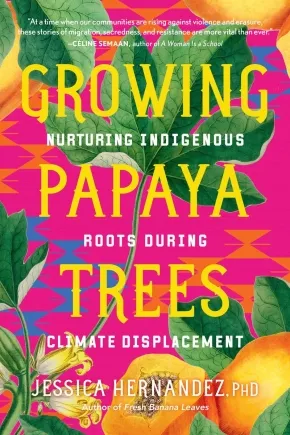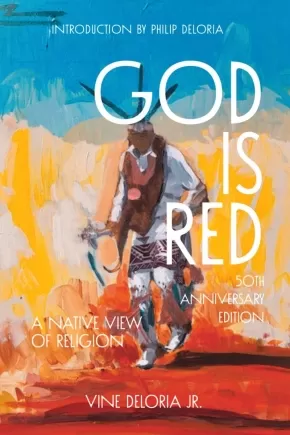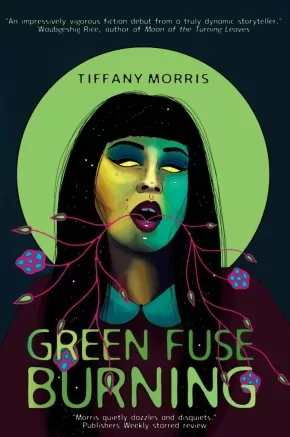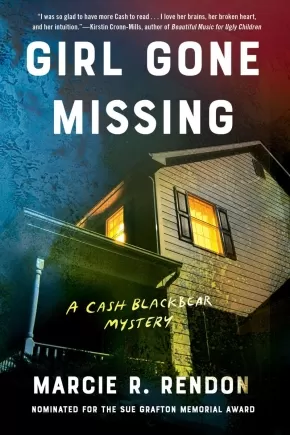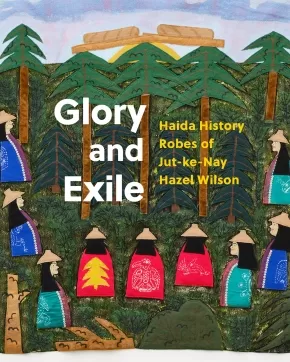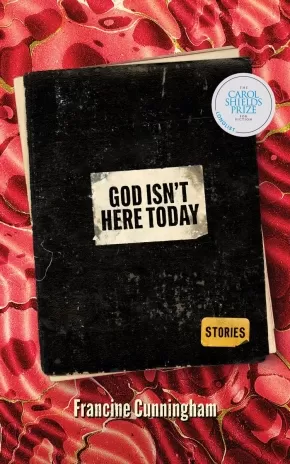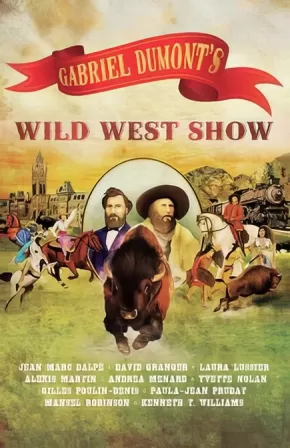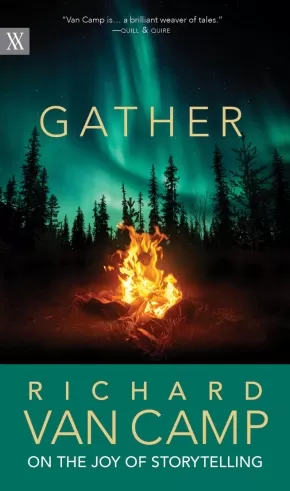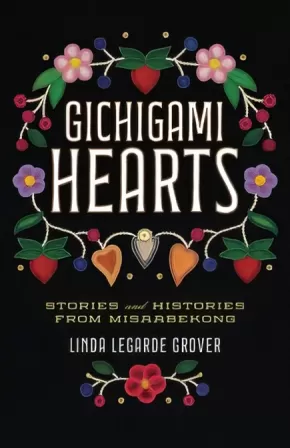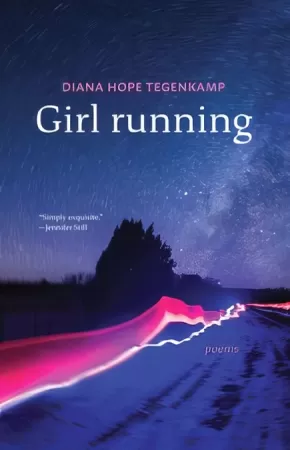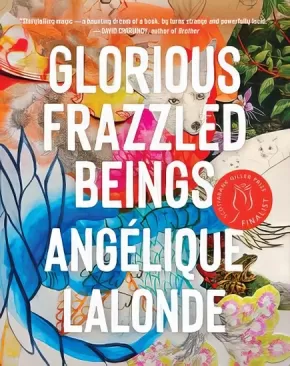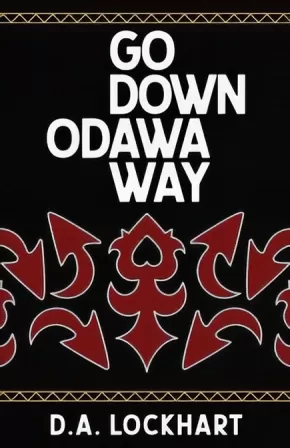
Browse Books for Adults
1
-
15
of
38 Results; (Books Starting With "G")
Sort By
Go To
of 3
Gino: The Fighting Spirit of Gino Odjick
$39.95
Format:
Hardcover
Text Content Territories:
Indigenous Canadian; First Nations; Anishinaabeg; Algonquin; Kitigan Zibi Anishinabeg;
Reading Level: N/A
ISBN / Barcode: 9781778402708
Synopsis:
Synopsis:
From veteran hockey reporter Patrick Johnston and Gino’s longtime friend Peter Leech comes the authorized biography of Gino Odjick.
In the 1980s and ’90s, National Hockey League games were very different from the nimble, skill-focused displays we see today. One of the greatest differences—and one of the sport’s more popular facets at the time—was the widespread presence of “enforcers”: hulking, battle-scarred players whose main task was to police the sport by chasing down and brawling with opponents who had broken unwritten codes determining which aspects of violence counted as dishonorable or unjustified.
When hard-hitting Vancouver Canucks player Gino Odjick emerged in the early 1990s, he quickly became one of the game’s most feared enforcers and revered teammates, a sign of a new era for the team, racking up 296 penalty minutes in the 45 games he played in his rookie season. Hailing from Kitigan Zibi, an Algonquin community near Maniwaki, Quebec, Gino was one of the few Indigenous players in the NHL at the time. But it was Gino’s ferocious play contrasted by his genuinely affable and openhearted personality off the ice that won him a special place in the hearts of Canucks supporters.
Yet legends often obscure the human stories behind them. Patrick Johnston and Peter Leech look beyond Gino’s legendary persona, drawing on insights from family members, friends, and teammates to recount Gino’s early years in a loving household that was always ready to welcome foster children. Gino’s father, Joe, had suffered the lonely traumas of the residential school system, and the experience had instilled a commitment in the family to those who were less fortunate.
The book also details Gino’s eventual struggles with alcohol abuse, and how he responded by taking on the role of empathetic mentor to young Indigenous people, travelling from community to community to hear their stories and offer hope. He never wavered in this role, even as he confronted serious illnesses, including chronic traumatic encephalopathy (CTE) and the rare blood disorder that he survived for years longer than expected, but that eventually led to his death at age fifty-two.
Gino is a moving tribute to a beloved hockey legend.
Reviews
"Gino was the greatest teammate; he had such a huge heart and knew his role better than anyone in the league. Gino loved being a Vancouver Canuck and gave back to the community in so many ways. He will be greatly missed by his family, friends, and fans. This book will give people insight into his remarkable life."—Geoff Courtnall
“Gino provides a compelling account of the life of a beloved Vancouver Canuck. From his humble beginnings in Quebec to NHL stardom and beyond, Odjick was dedicated to the well-being of teammates and the Indigenous community. This is an excellent tribute to an exceptional man.”—Randi Druzin, author of Between the Pipes and Behind the Mask
Additional Information
288 pages | 6.00" x 9.00" | b&w insert | Hardcover
Girl Warrior: On Coming of Age
$28.99
Format:
Hardcover
Text Content Territories:
Indigenous American; Native American; Muscogee (Creek);
Reading Level: N/A
ISBN / Barcode: 9781324094173
Synopsis:
Synopsis:
“To know ourselves is the most profound and difficult endeavor. Though we are all made of the same questions, we have individual routes to the answers, or to reframing the questions. Why is there evil in the world? Why do people suffer, and some more than others? Why are we here? What are we doing here? What happens after death? Does anything mean anything at all? Who am I and what does it matter?” writes Joy Harjo, renowned poet and activist, in this profound work about the struggles, challenges, and joys of coming of age.
In her best-selling memoir Poet Warrior, Harjo led readers through her lifelong process of artistic evolution. In Girl Warrior, she speaks directly to Native girls and women, sharing stories about her own coming of age to bring renewed attention to the pivotal moments of becoming including forgiveness, failure, falling, rising up, and honoring our vast family of beings.
Informed by her own experiences and those of her ancestors, Harjo offers inspiration and insight for navigating the many challenges of maturation. She grapples with parents, friendships, love, and loss. She guides young readers toward painting, poetry, and music as powerful tools for developing their own ethical sensibility. As Harjo demonstrates, the act of making is an essential part of who we are, a means of inviting the past into the present and a critical tool young women can use to shape a more just future. Lyrical and compassionate, Harjo’s call for creativity and empathy is an urgent and necessary work.
Reviews
"Joy Harjo combines the wisdom that was here long before Europeans showed up with the challenges of a woman’s life in the present. The result is inspired by the past and a personal preparation for the future."— Gloria Steinem, feminist activist and author
"What a beautiful and brilliant call to arms. I wish I had Joy Harjo’s words when I was young. This book is a lovely ode to her own bravery and by extension, all of ours. Girl Warrior gives possibility to young people (and all people) through Joy Harjo’s own coming-of-age narrative. More than about having waded through tumultuous waters and survived to not only tell the story but thrive inside the people we become on the other side. This book is simply a balm."— Jacqueline Woodson, National Book Award winner
Additional Information
176 pages | 5.37" x 8.00" | Hardcover
Growing Papaya Trees: Nurturing Indigenous Roots During Climate Displacement
$27.95
Format:
Paperback
Text Content Territories:
Indigenous Central American; Indigenous Peoples in El Salvador; Maya; Maya Ch'orti' ; Indigenous Peoples in Mexico; Zapotec;
Reading Level: N/A
ISBN / Barcode: 9798889840978
Synopsis:
Synopsis:
Leading Binnizá and Maya Ch'orti' scientist Jessica Hernandez, PhD, weaves together Indigenous knowledge, environmental science, and personal family stories in her highly anticipated follow-up to the LA Times best-seller Fresh Banana Leaves.
Not every environmental problem is a result of climate change, but every environmental and climate change problem is a result of colonialism.
Dr. Jessica Hernandez offers readers an Indigenous, Global-South lens on the climate crisis, delivering a compelling and urgent exploration of its causes—and its costs. She shares how the impacts of colonial climate catastrophe—from warming oceans to forced displacement of settler ontologies—can only be addressed at the root if we reorient toward Indigenous science and follow the lead of Indigenous peoples and communities.
Growing Papaya Trees explores:
- Energy as a sociopolitical issue
- The interconnectedness of natural disasters, sociopolitical turmoil, and forced migration
- Our oceans, our forests, and our Indigenous futures
- Moving Indigenous science from mere acknowledgement into real action
- How to nourish Indigenous roots when displaced beyond borders
Dr. Hernandez asks: what does it mean to be Indigenous when we’re separated from our lands? How do we nurture future generations knowing they, too, will have to live away from their ancestral places? She illuminates that cultures are not lost, even amid genocide, turmoil, war, and climate displacement—and shows us how to be better kin to each other against the ecological violence, colonial oppression, and distorted status quo of the Global North.
Reviews
"In Growing Papaya Trees, Jessica Hernandez makes the case that Indigenous science is the best way to challenge the current climate crisis. Through beautiful prose and storytelling based on her own Maya Ch'orti' and Zapotec people's experiences with settler colonialism, she argues that we need collaboration and solidarity from all Indigenous communities, whether on their homelands or displaced into diaspora, and it is through our collective strength that we can meet the challenges of our times. If you want to learn about the importance of Indigenous science and papaya trees to address the climate crisis produced by colonialism, this is a must-read."—Kyle T. Mays (Black and Saginaw Chippewa), author of An Afro-Indigenous History of the United States
"A critical and timely contribution to the discourse on how Indigenous land-based knowledge, relationships, and stewardship can address climate displacement. Hernandez weaves together realities of Indigenous displacement, marginalization, and ongoing impacts of colonialism with stories and teachings rooted in Indigenous resilience and solidarity. Her deep connection to and love for ancestral homelands infuses the book with an intimacy that is rare and powerful. The teachings embedded in the book are not only important for other Indigenous people and scholars, but are also critical for everyone who cares about our shared histories and futures." —Styawat / Dr. Leigh Joseph, author of Held by the Land
"With Growing Papaya Trees, Dr. Hernandez breaks open discussions of diasporic Indigenous identity, shared histories, and climate displacement. Drawing from personal narratives and compelling research, Hernandez has provided an urgent second book that calls for both a keen eye on the past and solidarity in the present."—Kinsale Drake, author of The Sky Was Once a Dark Blanket
"Transported by stories that remind us that the Land remembers, Dr. Hernandez weaves tales that carry ancestral wisdom—guiding us toward collective survival, healing, and belonging. This book is a prayer, a balm, and a call to return to each other and to the Earth. At a time when our communities are rising against violence and erasure, these stories of migration, sacredness, and resistance are more vital than ever."—Céline Semaan, author of A Woman Is a School
Additional Information
224 pages | 6" x 8.99" | Paperback
God Is Red: A Native View of Religion - 3rd Edition
$34.95
Format:
Paperback
Text Content Territories:
Indigenous American; Native American;
ISBN / Barcode: 9781682753149
Synopsis:
Synopsis:
A 50th anniversary revised edition of the beloved classic, God is Red.
First published in 1973, Vine Deloria, Jr.’s God Is Red remains the seminal work on Native American religious views, asking the reader to think about our species and our ultimate fate in novel ways. Celebrating five decades of publication with this new edition, Deloria’s classic work reminds us to understand “that we are a part of nature, not a transcendent species with no responsibilities to the natural world.” It is time again to listen to Vine Deloria, Jr.’s powerful voice, informing us about a spiritual life that is independent of Western religion and that reveres the interconnectedness of all living things.
This new edition includes critical essays engaging with the original material by well-known Indigenous thinkers - Philip Deloria, Suzan Shown Harjo, Daniel Wildcat, and David E. Wilkins. Inside, the book covers a wide variety of topics including: the problem of creation, the origin of religion, Death, and Human personality.
“God is Red should be read and re-read by Americans who want to understand why the United States keeps losing the peace, war after war.” – Leslie Marmon Silko
Additional Information
360 pages | 6.00" x 9.00" | Paperback
Green Fuse Burning
$19.99
Format:
Paperback
Text Content Territories:
Indigenous Canadian; First Nations; Mi'kmaq;
Reading Level: N/A
ISBN / Barcode: 9781778092664
Synopsis:
Synopsis:
After the death of her estranged father, artist Rita struggles with grief and regret. There was so much she wanted to ask him – about his childhood, their family, and the Mi'kmaq language and culture from which Rita feels disconnected. But when Rita's girlfriend Molly forges an artist's residency application on her behalf, winning Rita a week to paint at an isolated cabin, Rita is both furious and intrigued. The residency is located where her father grew up.
On the first night at the cabin, Rita wakes to strange sounds. Was that a body being dragged through the woods? When she questions the locals about the cabin's history, they are suspicious and unhelpful. Ignoring her unease, Rita gives in to dark visions that emanate from the forest's lake and the surrounding swamp. She feels its pull, channelling that energy into art like she's never painted before. But the uncanny visions become more insistent, more intrusive, and Rita discovers that in the swamp's decay the end of one life is sometimes the beginning of another.
Reviews
"Green Fuse Burning is an impressively vigorous fiction debut from a truly dynamic storyteller. Tiffany Morris has laid out a concise and creepy tale that mesmerizes as it weaves through several realms, from the tangible to the spiritual. I was captivated by the looming mystery and the striking imagery that carried me like a current to the story's monumental resolution. This book is a must-read in new speculative fiction!" - Waubgeshig Rice, author of Moon of the Turning Leaves
"Morris quietly dazzles and disquiets in this weird horror novella . . . Poetic and grotesque imagery drives the novella's horror, with fluid narration fostering a sense of disconnect and dread . . . This is a subtle and refreshing twist on the cabin in the woods trope." - Publishers Weekly starred review
"A verdant alienation seeps through every page as Morris reimagines the possibilities of decay, a desperate isolation scouring the mind to reveal a torrid, seething strangeness beneath, the inevitable reckoning gathering its strength below the calm surface of the pond." - Andrew F. Sullivan, author of The Marigold and The Handyman Method
Additional Information
112 pages | 6.12" x 9.03" | Paperback
Girl Gone Missing
$22.95
Format:
Paperback
Text Content Territories:
Indigenous American; Native American; Anishinaabeg; Ojibwe (Chippewa);
ISBN / Barcode: 9781641293785
Synopsis:
Synopsis:
Marcie R. Rendon’s follow-up to Murder on the Red River finds Cash helping Sheriff Wheaton solve a murder that has likeness to the cases of missing and murdered Native women.
Cash is off to a local college with the help of Wheaton, who wants her to take hold of her life and aspire to better things. At Moorhead State she sees that people talk a lot but mostly about nothing, not like the men in the fields she’s known all her life, who hold the rich topsoil in their hands, talk fertilizer and weather and prices on the Grain Exchange.
In between classes and hauling beets, drinking beer and shooting pool, she begins to dream of the Cities and blonde Scandinavian girls calling for help.
Reviews
"Rendon is a natural storyteller and a consummate writer, and we’re indebted to Cinco Puntos Press in El Paso for bringing the unforgettable Cash Blackbear to life. There isn’t a protagonist in recent fiction with the bearing of Rendon’s creation, and we’re the better for knowing her."—Jeffrey Mannix
"I won’t recount the terror, the drama, and the bravery of what follows. You can read the book yourself. The ending, I’ll just say, is deeply satisfying. Rendon has been working for years in the prisons with women who are incarcerated for prostitution, soliciting, and other offenses. Teaching them to tell their stories and access their inner writing voice. She’s able to convey the savagery of the system, what it does to women and their families, how deeply it is connected to poverty, and how it reaches into white rural and suburban areas as well as communities of color." —Ann Markusen, Grand Rapids Herald-Review
"Darn that Marcie Rendon but she did it again. She wrote another book featuring Renee “Cash” Blackbear which invariably led to non-stop, compulsive reading and thoughts about the 19-year-old protagonist...This is a good book. If you read it, block out uninterrupted time. It’s hard to put down."—Deborah Locke,The Circle News: Native American News and Arts
"The vivid writing and keen eye keep the pages turning and readers hoping for another book in this series."—Wendy J. Fox, Buzzfeed
"Rendon's refreshing sequel to 2017's Murder on the Red River...When [Cash] hears about a missing coed, she contacts [Sheriff] Wheaton. Since they previously worked together successfully on a murder, Wheaton trusts Cash’s sharp instincts and asks for her help in solving the case...Rendon, herself a member of the White Earth Anishinabe Nation, highlights the plight of Native Americans who were forcibly adopted by whites and Cash’s discomfort in a land that is and is not hers. Readers will look forward to Cash’s next outing."—Publishers Weekly
"In her second outing, Cash Blackbear goes off to college and finds herself embroiled in the mystery of a missing classmate. 'I'm not used to folks treating me like I'm stupid,' says Cash. But Moorhead State is another world, one slow to disclose the secrets of its initiated."—Kirkus Reviews
Series Information
This is the second book in the Cash Blackbear Mystery series from author Marcie Rendon.
Additional Information
336 pages | 5.51" x 8.26" | Paperback
Glory and Exile: Haida History Robes of Jut-ke-Nay Hazel Wilson
$50.00
Format:
Hardcover
Text Content Territories:
Indigenous Canadian; First Nations; Haida;
ISBN / Barcode: 9781773271170
Synopsis:
Synopsis:
Through a series of fifty-one large “story robes,” Jut-ke-Nay Hazel Wilson shares a grand narrative of Haida origins, resistance, and perseverance in the face of colonialism, and of life as it has been lived on Haida Gwaii since time immemorial.
Glory and Exile: Haida History Robes of Jut-ke-Nay Hazel Wilson marks the first time this monumental cycle of ceremonial robes by the Haida artist Jut-Ke-Nay (The One People Speak Of) - also known as Hazel Anna Wilson - is viewable in its entirety. On 51 large blankets, Wilson uses painted and appliqued imagery to combine traditional stories, autobiography, and commentary on events such as smallpox epidemics and environmental destruction into a grand narrative that celebrates the resistance and survival of the Haida people, while challenging the colonial histories of the Northwest Coast.
Of the countless robes Wilson created over fifty-plus years, she is perhaps best known for The Story of K'iid K'iyaas, a series about the revered tree made famous by John Vaillant's 2005 book The Golden Spruce. But her largest and most important work is the untitled series of blankets featured here. Wilson always saw these works as public art, to be widely seen and, importantly, understood.
In addition to essays by Robert Kardosh and Robin Laurence, the volume features texts about each robe by Wilson herself; her words amplify the power of her striking imagery by offering historical and personal context for the people, characters, and places that live within her colossal work. Glory and Exile, which also features personal recollections by Wilson's daughter Kun Jaad Dana Simeon, her brother Allan Wilson, and Haida curator and artist Nika Collison, is a fitting tribute to the breathtaking achievements of an artist whose vision will help Haida knowledge persist for many generations to come.
Reviews
“Hazel was a matriarch, artist, and Storyteller. Thomas King once wrote, “The truth about stories is, that’s all we are.” To experience Hazel’s work is to learn a story within a story: the past as taught by her Elders; the life she herself experienced within these narratives; and a glimpse of our storied future, which we will build by upholding our own responsibilities to Haida Gwaii, the Supernatural, and each other.” —Jisgang Nika Collison, in Glory and Exile
Additional Information
232 pages | 8.02" x 10.23" | Hardcover
God Isn't Here Today
$20.95
Format:
Paperback
Text Content Territories:
Indigenous Canadian;
Reading Level: N/A
ISBN / Barcode: 9781988784908
Synopsis:
Synopsis:
For fans of Chuck Palahniuk, Joyce Carol Oates, and Karen Russell, God Isn’t Here Today ricochet between form and genre, taking readers on a dark, irreverent, yet poignant journey led by a unique and powerful new voice.
Driven by desperation into moments of transformation, Cunningham’s characters are presented with moments of choice—some for the better and some for the worse. A young man goes to God’s office downtown for advice; a woman discovers she is the last human on Earth; an ice cream vendor is driven insane by his truck’s song; an ageing stripper uses undergarments to enact her escape plan; an incubus tires of his professional grind; and a young woman inherits a power that has survived genocide, but comes with a burden of its own.
Even as they flirt with the fantastic, Cunningham’s stories unfold with the innate elegance of a spring fern, reminding us of the inherent dualities in human nature—and that redemption can arise where we least expect it.
Reviews
"Each of the stories is quite different from the other, but many are connected by themes of death and transformation and a fragrant throughline of lemon and lavender. ... The stories contain a distinct viscerality: hemoglobin and skin grafts, fantasies of rough sex and bondage, ice cream melting down forearms, and a DIY trepanation. ...God Isn’t Here Today may appeal to fans of Joshua Whitehead, Chuck Palahniuk, and the trash cinema of John Waters."—Shantell Powell Cloud Lake Literary
"God Isn't Here Today is a collection, I feel, that is whispered in the calligraphy of ghosts. Cunningham continues to both astound and haunt all who discover her. Wow!"—Richard Van Camp, author of The Lesser Blessed
Additional Information
248 pages | 5.00" x 8.00" | Paperback
Gabriel Dumont's Wild West Show
$24.95
Format:
Paperback
Text Content Territories:
Indigenous Canadian; Métis;
Grade Levels: 12; University/College;
ISBN / Barcode: 9781772013191
Synopsis:
Synopsis:
Gabriel Dumont’s Wild West Show is a flamboyant epic, constructed as a series of tableaux, about the struggles of the Métis in the Canadian West. It is a multilayered and entertaining saga with a rodeo vibe, loosely based on Buffalo Bill’s legendary outdoor travelling show. In 1885, following the hanging of his friend Louis Riel, bison hunter Gabriel Dumont fled to the United States. There he was recruited by the legendary Buffalo Bill, founder of Buffalo Bill’s Wild West, a gigantic outdoor travelling show that re-enacted life in the American West. It made a huge impression on Dumont, and he dreamed of putting together a similar show to tell the story of the struggle of Canada’s Métis to reclaim their rights.
The creative team behind Gabriel Dumont’s Wild West Show – including ten authors, Indigenous and non-Indigenous, French- and English-speaking men and women – brings Dumont’s dream to life in a captivating, joyously anachronistic saga. The theatrical version of Gabriel Dumont’s Wild West Show presented by the National Arts Centre was one of a number of exceptional projects funded through the Canada Council for the Arts’ New Chapter initiative. (Adapted from nac-cna.ca/en/wildwestshow).
This is a bilingual book, co-published with Éditions Prise de parole, and enhanced with a historical background, a chronology of the Métis Resistances, and visual documents.
Reviews
“Really excellent. I laughed till I cried!” —Marilou Lamontagne, ICI Radio-Canada Ottawa-Gatineau
“[A] play that pleases, puzzles, and provokes, in a form that keeps shifting wildly from one moment to the next like a bucking bronco.”—J. Kelly Nestruck, Globe and Mail
“If Gabriel Dumont’s Wild West Show is so successful, while being funny and sad at the same time, it’s because the creative team did its research and listened to the communities involved in the rehabilitating of the figure of Gabriel Dumont. What takes shape here is a wave of madness and a rewriting of our national narrative.”—Maud Cucchi, JEU Revue de théâtre
“Gabriel Dumont’s Wild West Show is a crazed, fast-paced Métis 101 history lesson, in which acidity and humour deliver the story.”—Martin Vanasse, Radio-Canada
“[A] seamlessly cohesive narrative ... a zany form ... a phantasmagorical piece of pure entertainment ... a delirious blend of historical drama, musical, burlesque cabaret, hockey night, and TV quiz!”—Pierre-Alexandre Buisson
“Between bursts of laughter (of the uneasy sort at times) and moments of lively emotion, Gabriel Dumont’s Wild West Show takes [us] on a journey up hill and down dale through the history of the Métis Resistances and tells an oft-forgotten part of our collective history.” - Valérie Lessard, Le Droit
Additional Information
304 pages | 5.40" x 8.50" | Paperback
Gather: Richard Van Camp on the Joy of Storytelling
$19.95
Format:
Paperback
Text Content Territories:
Indigenous Canadian; First Nations; Dene; Tlicho (Dogrib);
ISBN / Barcode: 9780889777002
Synopsis:
Synopsis:
Stories are medicine. During a time of heightened isolation, bestselling author Richard Van Camp shares what he knows about the power of storytelling—and offers some of his own favourite stories from Elders, friends, and family.
Gathering around a campfire, or the dinner table, we humans have always told stories. Through them, we define our identities and shape our understanding of the world.
Master storyteller and bestselling author Richard Van Camp writes of the power of storytelling and its potential to transform speakers and audiences alike.
In Gather, Van Camp shares what elements make a compelling story and offers insights into basic storytelling techniques, such as how to read a room and how to capture the attention of listeners. And he delves further into the impact storytelling can have, helping readers understand how to create community and how to banish loneliness through their tales. A member of the Tlicho Dene First Nation, Van Camp also includes stories from Elders whose wisdom influenced him.
During a time of uncertainty and disconnection, stories reach across vast distances to offer connection. Gather is a joyful reminder of this for storytellers: all of us.
Reviews
“Stories and storytellers are an important part of what makes us human. Van Camp’s stories, whether they feature light comedy, family discord and reconciliation or his vivid images of the legendary Wheetago monsters, revived by global warming and horrifically hungry for human flesh, are gifts to the reader.” —Vancouver Sun
“Van Camp is…a brilliant weaver of tales.” —Quill & Quire
Additional Information
162 pages | 5.00" x 8.50"
Gehl v Canada: Challenging Sex Discrimination in the Indian Act
$26.95
Format:
Paperback
Text Content Territories:
Indigenous Canadian; First Nations; Anishinaabeg; Algonquin;
Grade Levels: University/College;
ISBN / Barcode: 9780889778252
Synopsis:
Synopsis:
For 34 years, Lynn Gehl fought against the sex discrimination built into Canada’s Indian Act. This is the story of her challenges and eventual success.
A follow-up to Claiming Anishinaabe, Gehl v Canada is the story of Lynn Gehl’s lifelong journey of survival against the nation-state’s constant genocidal assault against her existence. While Canada set up its colonial powers—including the Supreme Court, House of Commons, Senate Chamber, and the Residences of the Prime Minister and Governor General—on her traditional Algonquin territory, usurping the riches and resources of the land, she was pushed to the margins, exiled to a life of poverty in Toronto’s inner-city.
With only beads in her pocket, Gehl spent her entire life fighting back, and now offers an insider analysis of Indian Act litigation, the narrow remedies the court imposes, and of obfuscating parliamentary discourse, as well as an important critique of the methodology of legal positivism. Drawing on social identity and Indigenous theories, the author presents Disenfranchised Spirit Theory, revealing insights into the identity struggles facing Indigenous Peoples to this day.
Reviews
“Congratulations . . . to Dr. Lynn Gehl for her successful challenge of the Indian Registrar’s refusal to allow her to be registered under the Indian Act. . . . Good win, Lynn!”—The Honourable Murray Sinclair
“With knowledge and experience from years of advocacy before Parliament as well as the courts, and the depth of perception typical of all her scholarly work, Dr. Gehl assesses what more is needed before the Indian Act system can be truly egalitarian. Her book is unique and inspiring.” —Mary Eberts, from the foreword
“[R]emarkable . . . a monument in Indigenous struggles with the colonial Crown.” —Veldon Coburn, Institute of Indigenous Research and Studies at University of Ottawa
“Gehl embodies essential Indigenous wisdom, bravery, and responsibility in her work to dismantle the systems of colonial oppression. Her work serves as a beacon in a network of pathways for our people to make their way home.” —Chief Wendy Jocko, Algonquins of Pikwàkanagàn First Nation
“The legal decision in Gehl v Canada will have profound effects for the future, ensuring that hundreds of thousands of Indigenous mothers will be able to pass their status on to their children. This victory, the product of decades of struggle by Lynn Gehl, is chronicled here. Read it and learn!” —Bonita Lawrence, author of Fractured Homeland
Educator Information
This is the follow-up to Claiming Anishinaabe.
Centres Anishinaabe methods of personal truth over western academia.
Introduces readers to the paternity policy of the Indian Art, explaining how this policy was sexual discrimination and bloodless genocide. The paternity policy of the Indian Act required individuals claiming Status to demonstrate the lineage of both parents. Harmful to Indigenous mothers and children, and imposing a high evidentiary burden on Indigenous people claiming Status, it was overturned on April 20, 2017, in what is now known as the Gehl decision.
Additional Information
288 pages | 6.00" x 9.00" | Paperback
Gichigami Hearts: Stories and Histories from Misaabekong
$20.99
Format:
Paperback
Text Content Territories:
Indigenous American; Native American; Anishinaabeg; Ojibwe (Chippewa); Bois Forte Band of Chippewa;
Reading Level: N/A
ISBN / Barcode: 9781517911935
Synopsis:
Synopsis:
Award-winning author Linda LeGarde Grover interweaves family and Ojibwe history with stories from Misaabekong (the place of the giants) on Lake Superior.
Long before there was a Duluth, Minnesota, the massive outcropping that divides the city emerged from the ridge of gabbro rock running along the westward shore of Lake Superior. A great westward migration carried the Ojibwe people to this place, the Point of Rocks. Against this backdrop—Misaabekong, the place of the giants—the lives chronicled in Linda LeGarde Grover’s book unfold, some in myth, some in long-ago times, some in an imagined present, and some in the author’s family history, all with a deep and tenacious bond to the land, one another, and the Ojibwe culture.
Within the larger history, Grover tells the story of her ancestors’ arrival at the American Fur Post in far western Duluth more than two hundred years ago. Their fortunes and the family’s future are inextricably entwined with tales of marriages to voyageurs, relocations to reservation lands, encounters with the spirits of the lake and wood creatures, the renewal of life—in myth and in art, the search for meaning in the transformations of our day is always vital. Finally, in one man’s struggles, age-old tribulations, the intergenerational traumas of extended families and communities, and a uniquely Ojibwe appreciation for the natural and spiritual worlds converge, forging the Ojibwe worldview and will to survive as his legacy to his descendants.
Blending the seen and unseen, the old and the new, the amusing and the tragic and the hauntingly familiar, this lyrical work encapsulates a way of life forever vibrant at the Point of Rocks.
Reviews
"With compelling stories of sacred places, beloved people, myths, legends, and treasured memories, Gichigami Hearts is a moving tribute to the Ojibwe past."— Carolyn Holbrook, author of Tell Me Your Names and I Will Testify
"With stories of the essence of land and people, Linda LeGarde Grover weaves a generational history of a sacredness inseparable from place, of the unbroken chain of Anishinaabe existence in Missabekong. Her powerful prose and ethereal poetry wash over the pages like waves along the shore of Lake Superior, revealing a strength of survival that goes beyond memory and reminding us to watch, listen, and breathe."—Gwen Westerman, Minnesota State University, Mankato
"In Linda LeGarde Grover’s Gichigami Hearts, we are given the gift of an intensely personal, and at the same time brilliant, walkthrough of Grover’s part of the Anishinaabe universe. Just a tremendously lovely and unique book."—Erika T. Wurth, author of White Horse
Educator Information
Contents
Part I. Point of Rocks
Gabbro
An Old Story
Bimosewin: From the Bethel to the Union Gospel Mission
From the Rocks to the Docks
Anishinaabe Relatives and Holy Places
Grandparents
Life Among the Italians
The Beanbag
Rain, Fog, Ghost, Spider
Part II. Gichigami Hearts
Waawaashkeshi
Mooz
Lake Hearts
Lake Spirits
Sea Smoke on Gichigami
Barney-enjiss
The Stone Tomahawk
Part III. Rabbits in Wintertime
Listening and Remembering By Heart
Rabbits in the Snow
Niizh Odain: The Wolf and the Rabbit
The Harbor: Nanaboozhoo’s Brothers of the Heart
Woods Lovely, Dark, and Deep
Rabbits Watching Over Onigamiising
Part IV. Traveling Song
The End and Renewal of the Earth
Redemption
Mishomis
Grandfather-iban Gi-bimose
Places Remembered, Though Some Have Changed
Homeland
Traveling Song
Acknowledgments
Additional Information
200 pages | 5.50" x 8.50" | 8 Black and white illustrations | Paperback
Girl running
$24.95
Format:
Paperback
Text Content Territories:
Indigenous Canadian; Métis;
Reading Level: N/A
ISBN / Barcode: 9781771872140
Synopsis:
Synopsis:
This stellar debut collection by Métis poet Diana Hope Tegenkamp takes us through many worlds and wonders. In Girl running, we find solace and outrage, grief and tenderness, bewilderment and beauty, all “entangled in hope and dreaming.” The poet’s love of the natural world is both earthy and adamantine, and her passion for literature and art is just as rich a source for her questioning eye.
On the edge of Saskatoon, a woman opens a car door and flees. A child runs away from residential school after a beating. A Métis man’s ghost gallops on a ghost horse across the prairies. Henry James’ 19th-century heroine, Isabel Archer, runs across a wintery yard. Lana Tisdel drives away from Falls City, Nebraska, after the murder of her transgender boyfriend.
After many losses—of a mother known and loved, of a Métis father unknown and imagined—the ‘girl’ of this collection is running towards and away from mortality. In these poems, disappearances, perpetual flights, river walks, shadowy descents and miraculous returns connect daily living and mortality, current social realities and ancient histories, the surface and the subterranean depths of our complicated lives. Lovers of contemporary Canadian poetry will find that this textured collection rewards reading and rereading.
Additional Information
120 pages | 5.50" x 8.50" | Paperback
Glorious Frazzled Beings
$22.99
Format:
Paperback
Text Content Territories:
Indigenous;
Reading Level: N/A
ISBN / Barcode: 9781487009571
Synopsis:
Synopsis:
Home is where we love, suffer, and learn. Some homes we chose, others are inflicted upon us, and still others are bodies we are born into. In this astounding collection of stories, human and more-than-human worlds come together in places we call home.
Four sisters and their mother explore their fears while teeny ghost people dress up in fragments of their children’s clothes. A somewhat-ghost tends the family garden. Deep in the mountains, a shapeshifting mother must sift through her ancestors’ gifts and the complexities of love when one boy is born with a beautiful set of fox ears and another is not. In the wake of her elderly mother’s tragic death, a daughter tries to make sense of the online dating profile she left behind. And a man named Pooka finds new ways to weave new stories into his abode, in spite of his inherited suffering.
A startling and beguiling story collection, Glorious Frazzled Beings is a love song to the homes we make, keep, and break.
Reviews
"Sly, mythical, wise, Glorious Frazzled Beings is an extraordinary work of non-conformist daring: a boy is born with fox ears, an abandoned pregnancy test is encountered by random women in mall bathroom, an overwhelmed mother makes clothing for tiny ghosts. With sharp visionary instinct, Lalonde not only confronts both the magic and cruelty of living, and the border between worlds, mythical and visceral — she lights it on fire. Brilliantly alive, full of devastation and wonder, reading these stories will change you.” — Heidi Sopinka, author of The Dictionary of Animal Languages
"I love this book! A magical debut. Angélique Lalonde is one of those writers who is already absolutely brilliant. I can’t believe she is just warming up. These are stories to curl around with a big mug of good tea, the kind of stories that seem lighthearted and whimsical but are actually doing so much heavy lifting. You will laugh out loud. You will find these lines embedded in your dreams, think of them while you are doing mundane chores, wonder at their sneaky magic — How did she do that? What is that spell? Sometimes you will think you have it figured out but ultimately, it will always elude you.” — Katherena Vermette, author of The Break and The Strangers
“Glorious Frazzled Beings is storytelling magic — a haunting dream of a book, by turns strange and powerfully lucid. I’m captivated by the relations so boldly evoked. I’m moved by the intimacies, the wicked humour, the glorious dare of play. Angélique Lalonde is an original talent who is channeling forces far beyond us in this urgent debut.” — David Chariandy, author of Brother
From the author: "My writing is deeply inspired by walking and being on the land. I see my writing practice as part of my being practice, which is a continuous learning about how to be in relationship with land, place, and the beings who I am responsible to in sharing land. There is a lot to learn and unlearn in this process because we all live on Indigenous lands, whether we are settlers or Indigenous people, or both. I currently live on Gitxsan territory as an uninvited guest so walking on the land is always political as well as spiritual and these complexities emerge in my writing. Lady with the big head chronicle, the first story in my collection, explores some of these complexities from a fictionalized first-person narrator’s point of view. I learned how to walk on the land from my mother, and have always been a displaced person with an unclear relationship to my mother’s ancestors. So I carry her, and my own ancestors with me when I walk and write, sifting through what I’ve inherited and the land and language that holds my walking. I have been blessed to have had several dog friends accompany on my walks throughout my life. They help orient me to a world beyond my human knowing, and these learnings also inspire my writing" - from "Scotiabank Giller Prize Spotlight: Angélique Lalonde"
Educator Information
Curriculum Connections: Short Stories, Small Town and Rural, Family Life, Magical Realism
Additional Information
304 pages | 5.50" x 7.00" | Paperback
Go Down Odawa Way
$17.95
Format:
Paperback
Text Content Territories:
Indigenous Canadian; First Nations; Anishinaabeg; Odawa (Ottawa); Ojibway; Chippewas of the Thames ; Potawatomi; Huron-Wendat (Ouendat);
Reading Level: N/A
ISBN / Barcode: 9781928120315
Synopsis:
Synopsis:
Go Down Odawa Way is a poetry collection that explores the physical, historical, and cultural spaces that make up the southwestern traditional territory of the Three Fires Confederacy. This is the region currently inhabited by southwestern Ontario and southeastern Michigan. Individual poems and sections of this collection explore the documented villages, history, and mythologies of the Odawa, Ojibway, Huron/Wendat, and Pottawatomi nations that were lost to the process of colonization and relocation. The project speaks to the history of the region that predates contemporary Canadian and American borders and namings as well as carves out a history that extends back past the mere couple of centuries of European colonization. The narrative focal point of the pieces find their roots in the traditional Lenape vantage point of the author and seeks to draw on the experiences of a modern day urban Indian in connection with the manner that land has changed with non-Indigenous settlement and those that inhabit it.
Additional Information
76 pages | 5.50" x 8.50" | Paperback
Sort By
Go To
of 3





